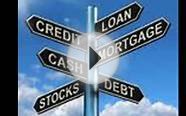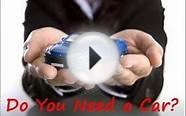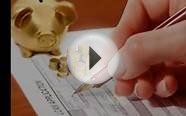
There are two basic types of loans: secured and unsecured.
A secured loan is backed by an asset that the lender can seize if the loan is not repaid, typically a car or a house. An unsecured loan is granted based on your creditworthiness alone.
Personal loans are typically unsecured. If you need to borrow for a wedding or debt consolidation, for example, there’s no property to offer as collateral. But buying a car? You usually get a secured auto loan and the bank keeps the title until it’s paid off.
Most people immediately think of unsecured personal loans when they’re considering this product, meaning they’re looking for a loan that isn’t tied to any type of collateral.
Benefits and drawbacks to each type of personal loan
When it comes to personal loans, there are benefits and drawbacks to each loan option. Let’s take a look:
Unsecured personal loans – The major advantage to choosing an unsecured personal loan is that you don’t have to worry about something valuable being taken away from you if you don’t pay on the loan. Undoubtedly, you intend on making your payments on time and in full, but it’s almost always a good idea to avoid putting assets on the line whenever you can.
However, the drawback to unsecured personal loans is that you’ll likely pay a higher interest rate than you would with the secured version. Generally, all unsecured loans charge higher rates than loans with collateral attached — plus, you’ll need a pretty good credit score to qualify for the best rates. You can get an unsecured personal loan with poor credit, but expect to pay double-digit interest rates.
There are many lenders that will give you an unsecured personal loan without checking your credit, but unfortunately they come with interest rates of 200%, 300% or more.
Secured personal loans – There are a few distinct benefits to taking out a secured personal loan, says Rebecca Lytle, senior vice president and chief lending officer at San Francisco Federal Credit Union. Here’s what she said:
“The pros of a secured loan are that the rate on the loan is generally less than that charged by a lender for an unsecured loan. The pledging of the collateral makes the loan more appealing to the lender … and therefore lenders generally charge a lower interest rate than an unsecured loan. It is generally easier to get a secured loan, especially if the borrower has had credit challenges.”
As for drawbacks to secured personal loans, Lytle stated:
“The cons of a secured loan would be if the borrower did not pay the loan as agreed, then the asset that was pledged as collateral would be repossessed by the lender.”
What can you use to secure a personal loan? A lot depends on the lender. Many might accept the title to a car or lend against the value of a savings account, a certificate of deposit or any stocks you might hold.
The bottom line: Which type of personal loan is right for you?
Deciding between a secured and an unsecured personal loan might seem tricky. Ask yourself these questions to figure out which is right for you:
- Do I have good credit? If your credit score is in poor shape, you may not qualify for an unsecured personal loan. In this case take steps to improve your credit and consider secured personal loan options.
- What kind of interest rate can I afford? Again, it’s usually better not to put an asset on the line if you can avoid it. If you can afford to pay a higher interest rate on your personal loan, unsecured is a better bet.
- Do I have any collateral to offer to a lender? If you’re looking to avoid paying a high interest by putting up collateral, it’s essential that you have collateral to put up. Otherwise, you’ll need to opt for an unsecured personal loan.
No matter which type of personal loan you ultimately decide is right for you, remember to do your due diligence and shop around. Be sure to check out big banks, local banks, credit unions, and peer-to-peer lending platforms before signing on the dotted line – you never know who will offer the best terms until you look!
Interesting facts
Additional information














